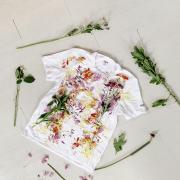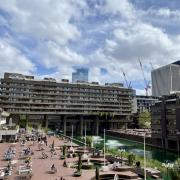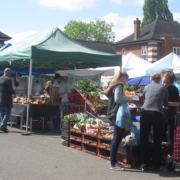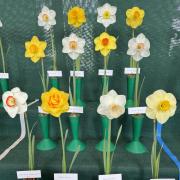
With concern for the environment on the rise, the future is looking bleak. With the bee populations on the decline, what can we do to get involved?
According to SOS Bees, parasites, pathogens, industrial agriculture and climate change are the main reasons for the global decline in bee populations. Bees do an important job in pollinating the flowers and trees which make up the environment for wildlife . Whilst the trees are essential to filter our air, bees pollinate the food we need to eat, meaning bees are important to our survival. The Woodland Trust states that honey is also full of energy and medicinal properties, making this sweet product quite desirable.
I spoke to Michael McDonald, a beekeeper at Aldenham Golf Club, about his experience with bees and how it all began:
“My interest in bees first started many years ago when my father-in-law introduced me to his bees in Slovakia. His bees were kept in the village where he lives during the winter and moved into the mountains in spring. The nectar flow for the bees was then wild mountain flowers which made the honey produced very tasty. From that moment I harboured an interest in keeping my own bees to produce my own honey but more for helping the environment.”
From the initial 12 week training course organised by West Herts Beekeeping Association, Mr McDonald was able to learn what he needed to know to look after bees. Whilst beekeeping takes a lifetime of experience, a course like this is great for anyone looking at how to start. Learning about the different diseases and bees, the course covers what you need to set up your own colony – they even cover what you need to look for in a healthy, functioning hive.
So what do you have to do to look after bees?
“The beekeeping work varies depending on season. In winter we make sure the hives have food, are kept dry inside, are safe from predators such as woodpeckers, mice and are free of disease. In spring we again feed the bees, increase the size of hive, check for disease and check the Queen has survived the winter” Mr McDonald explains. “In summer again we are checking the size of the colony and make sure the Queen is laying brood. We also check the bees aren’t about to swarm - where we could lose the colony. Autumn is spent collecting honey, feeding bees and preparing the hive for winter where the cycle begins again!”
“I currently have two hives (colonies) and are hoping to expand the apiary this coming summer,” Mr McDonald said, “these hives are located in a quiet area of Aldenham Golf Club.” By locating his colonies at the golf club, many members have expressed an interest in beekeeping. With the apiary on the course, it has helped with the pollination of the many trees and plants growing there. Soon enough, the golf course will receive some of the honey that the bees have produced.
The next time you are looking for a new hobby, maybe you should try beekeeping. Not only is it great for the environment, but you also get to produce your own supply of honey.
Esme Magnier



























